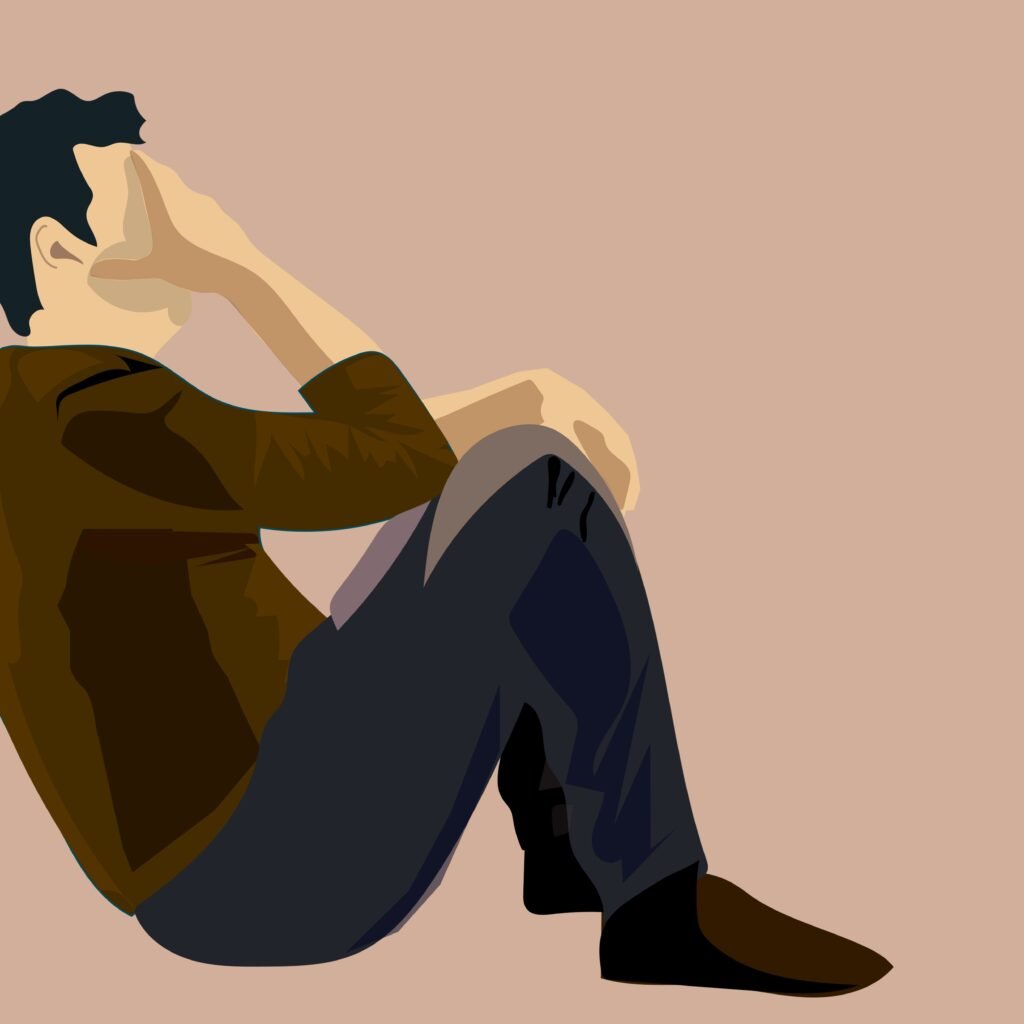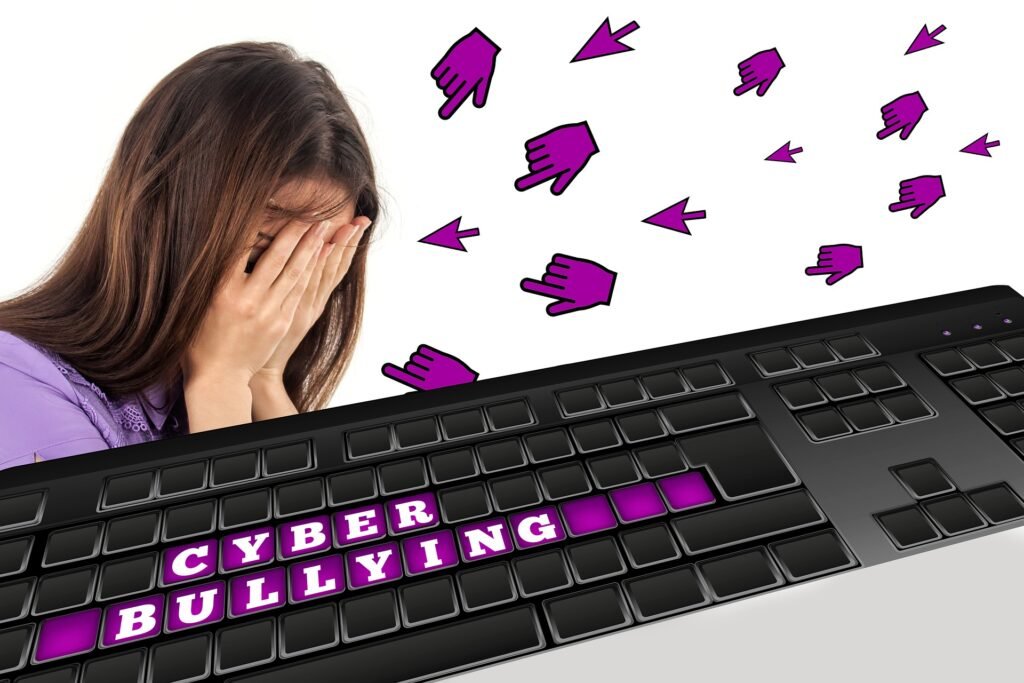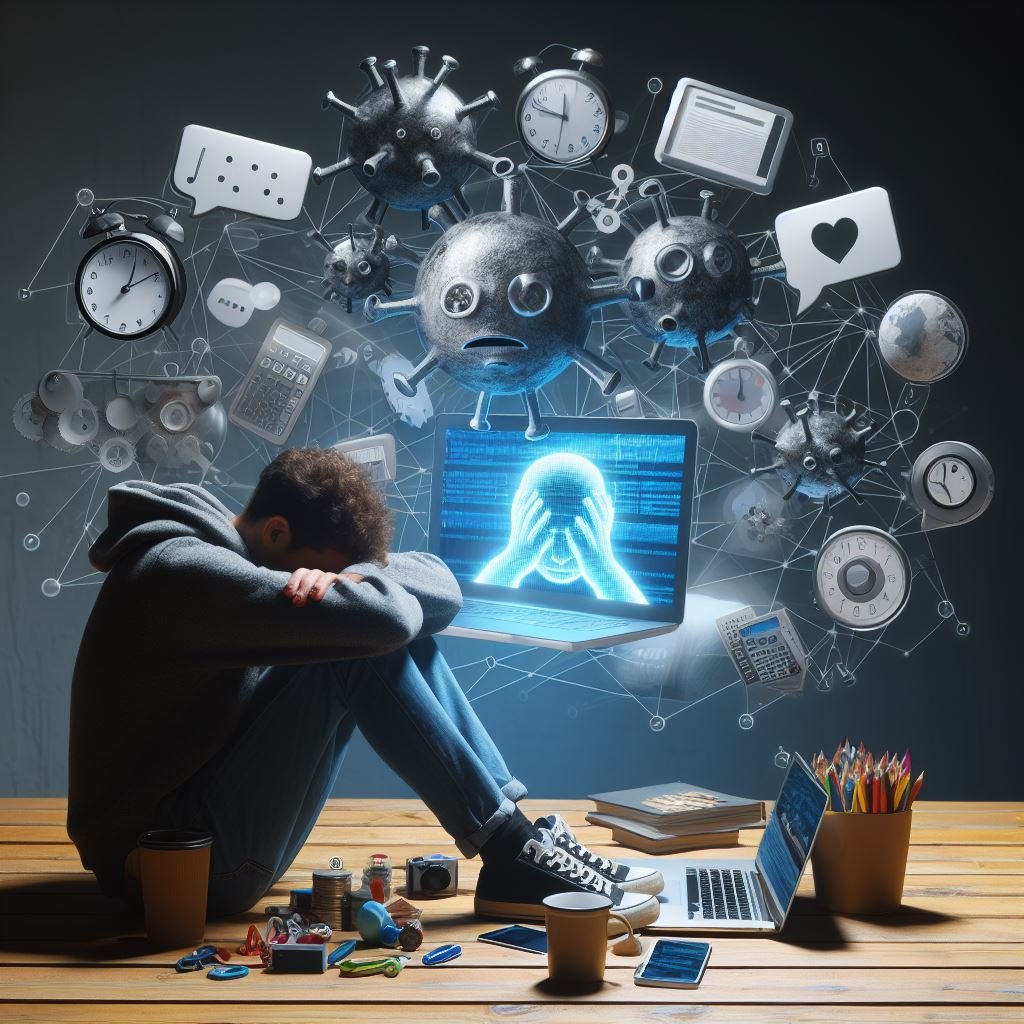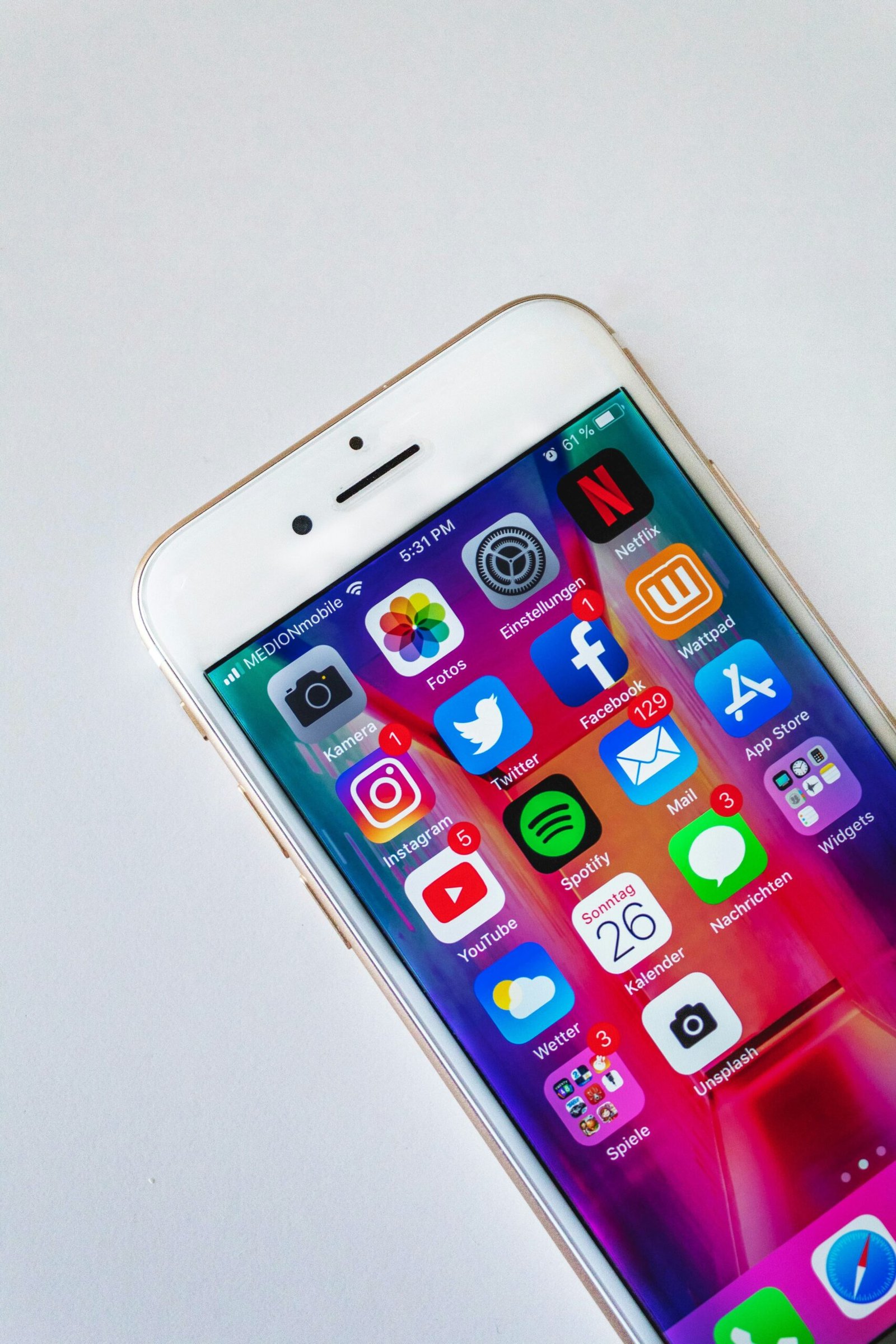Impact of Social Media on Mental Health
Over the past decade, social media has grown exponentially, with billions of users worldwide. It has become a powerful tool for communication, self-expression, and staying connected with friends and family. However, the rise of social media has also given birth to a new epidemic, one that is often overlooked but silently wreaks havoc on our mental well-being.
The Illusion of Perfection
One of the most significant impacts of social media on mental health is the constant exposure to the seemingly perfect lives of others. Platforms like Instagram are filled with carefully curated images of beautiful vacations, flawless bodies, and picture-perfect moments. As we scroll through our feeds, it’s easy to fall into the trap of comparing ourselves to these idealized versions of reality.
Studies have shown that this constant exposure to images of perfection can lead to feelings of inadequacy, low self-esteem, and even depression. We start to question our own worth and value based on the number of likes and followers we have or the number of filters we use to enhance our photos. The pressure to present a flawless image of ourselves can be overwhelming, leading to a constant sense of anxiety and self-doubt.
The Fear of Missing Out

Another disturbing effect of social media on mental health is the fear of missing out, commonly known as FOMO. As we scroll through our feeds, we are bombarded with images of friends and acquaintances attending parties, traveling to exotic destinations, and living seemingly exciting lives. This constant exposure to the highlights of others’ lives can make us feel like we are missing out on something, leading to feelings of loneliness and dissatisfaction with our own lives.
Furthermore, social media has created a culture of comparison, where our self-worth is tied to the number of likes, comments, and shares we receive. We start to measure our happiness and success based on external validation, rather than focusing on our own personal growth and well-being. This constant need for validation can be exhausting, leading to increased stress levels and a constant sense of dissatisfaction.
The Rise of Cyberbullying

Perhaps one of the most alarming consequences of social media on mental health is the rise of cyberbullying. With the anonymity that social media provides, individuals feel emboldened to engage in hurtful and malicious behavior online. Cyberbullying can take many forms, including spreading rumors, posting derogatory comments, and sharing embarrassing or compromising photos.
The impact of cyberbullying on mental health can be devastating, leading to feelings of isolation, anxiety, and depression. Victims of cyberbullying often experience a loss of self-esteem and confidence, as they are constantly subjected to online harassment and humiliation. The 24/7 nature of social media means that there is no escape from the torment, as the bullying can follow them wherever they go.
The Need for a Digital Detox
During a digital detox, we can engage in activities that promote mental and emotional well-being, such as spending time in nature, practicing mindfulness and meditation, or connecting with loved ones face-to-face. By taking a step back from the constant noise of social media, we can regain perspective, prioritize self-care, and cultivate a healthier relationship with technology.
Furthermore, the comparison trap not only affects our self-worth but also our overall mental well-being. Constantly comparing ourselves to others can lead to feelings of envy, jealousy, and even depression. We may start to feel like we are not good enough or that we are lacking in some way.
We are bombarded with images of flawless models and influencers with perfect bodies, which can lead to body dissatisfaction and unhealthy behaviors such as extreme dieting or excessive exercise.
Additionally, the comparison trap can also impact our relationships. We may start to feel resentment towards our friends or loved ones who seem to have it all. We may become competitive or distant, as we constantly compare our lives to theirs.
It is crucial to remember that social media is not an accurate representation of reality. People only share the highlights of their lives, and it is essential to recognize that everyone has their own struggles and imperfections. Comparing ourselves to others is an unfair and unrealistic standard to hold ourselves to.
To combat the comparison trap, it is essential to cultivate self-compassion and focus on our own journey. Instead of comparing ourselves to others, we should celebrate our own achievements and focus on personal growth. Setting realistic goals and practicing gratitude can also help shift our mindset away from comparison and towards self-acceptance.
Ultimately, social media can be a valuable tool for connection and inspiration, but it is crucial to use it mindfully and recognize its limitations. By being aware of the comparison trap and actively working to avoid falling into it, we can protect our mental health and cultivate a healthier relationship with social media.
It’s common for individuals to only share the highlights and positive aspects of their day-to-day experiences. This creates an unrealistic standard that we feel pressured to live up to. We compare ourselves to these seemingly perfect lives and feel inadequate in comparison.
Additionally, social media fosters a culture of constant comparison. We are constantly bombarded with images and updates from our friends, acquaintances, and even strangers. This constant exposure to others’ lives can lead to feelings of envy, jealousy, and a sense of missing out. We start to believe that everyone else is happier, more successful, and more fulfilled than we are.
This constant comparison can have detrimental effects on our self-esteem. We start to doubt our own worth and question our abilities. We may feel like we are not doing enough or that we are not as successful as our peers. These negative thoughts and feelings can spiral into a cycle of self-doubt and self-criticism.
Furthermore, social media platforms often prioritize popularity and external validation. The more likes, comments, and followers we have, the more visible and validated we feel. This can lead to a constant need for validation and approval from others. We become obsessed with crafting the perfect post or image that will garner the most attention and validation.
In this pursuit of external validation, we may lose sight of our own values and authenticity. We start to prioritize the opinions and expectations of others over our own desires and goals. Our self-worth becomes dependent on the approval of others, rather than our own self-acceptance and self-love.
It’s important to recognize the negative effects that excessive social media use can have on our self-worth and mental well-being. We need to remind ourselves that social media is a curated version of reality and not a true reflection of people’s lives. We should focus on nurturing our own self-esteem and finding validation from within rather than seeking it externally..
In the past, face-to-face conversations were the primary means of communication. We would sit down with our loved ones, engage in meaningful discussions, and truly listen to what they had to say. However, with the advent of social media, this has changed drastically. We now rely heavily on instant messaging platforms, such as WhatsApp or Facebook Messenger, to stay connected. While this may seem convenient, it has resulted in a loss of depth and intimacy in our conversations.
When we communicate through text messages or online chats, we miss out on crucial non-verbal cues, such as body language and tone of voice. These cues play a vital role in understanding the emotions and intentions behind someone’s words. Without them, misunderstandings are more likely to occur, leading to conflicts and strained relationships.
Additionally, the constant presence of social media in our lives has made it difficult to establish boundaries and maintain a healthy work-life balance. We are expected to be available and responsive at all times, blurring the lines between our personal and professional lives. This can lead to increased stress, burnout, and a lack of quality time spent with our loved ones.
Furthermore, social media has also changed the way we perceive ourselves and others. With the rise of carefully curated profiles and the pressure to present an idealized version of ourselves, comparison and self-doubt have become rampant. We constantly compare our lives to the highlight reels of others, leading to feelings of inadequacy and a distorted sense of reality.
Overall, while social media has undoubtedly brought us closer in some ways, it has also had a profound impact on our relationships outside of the digital realm. It is crucial to recognize these effects and find ways to mitigate them, ensuring that we maintain healthy and meaningful connections with those around us.

Breaking Free from the Social Media Trap
While it’s clear that social media has a disturbing impact on our mental health, it doesn’t mean we have to completely abandon these platforms. Instead, we need to be more mindful of our social media usage and take steps to protect our mental well-being.
Here are some strategies to break free from the social media trap:
- Set boundaries: Limit your daily social media usage and establish designated screen-free times, such as during meals or before bedtime. By setting clear boundaries, you can regain control over your time and reduce the negative effects of excessive media exposure.
- Curate your feed: Surround yourself with positive and uplifting content that aligns with your values and interests. By curating your feed, you can create a digital environment that promotes positivity and enhances your well-being.
- Practice self-care:.Take time to pursue hobbies, exercise, meditate, or engage in any other activities that bring you joy and fulfillment. By prioritizing self-care, you can build resilience against the negative effects of social media and nurture a positive mindset.
- Connect offline: Prioritize real-life interactions and invest time in nurturing meaningful relationships with your loved ones. Plan social activities, such as outings, game nights, or simply spending quality time together. By focusing on offline connections, you can strengthen your social support network and find fulfillment outside the digital realm.
- Seek support: If social media is significantly impacting your mental health, don’t hesitate to reach out to a mental health professional for guidance and support. They can help you navigate the challenges of media and develop coping strategies to protect your well-being.
Remember, your worth is not determined by the number of likes or followers you have. Your value lies in your unique qualities, experiences, and contributions to the world. Social media can be a powerful tool for connection and inspiration, but it should never define your self-worth. By implementing these strategies, you can break free from the media trap and reclaim control over your mental well-being.
FAQ’s
How does social media affect mental health?
Social media can have both positive and negative effects on mental health. On one hand, it allows people to connect with others, share experiences, and find support. However, excessive use of social media can lead to feelings of inadequacy, low self-esteem, and increased anxiety or depression. It can also contribute to cyberbullying and feelings of social isolation.
Does social media cause depression?
While social media itself may not directly cause depression, studies have shown a correlation between excessive social media use and symptoms of depression. Constant exposure to carefully curated highlight reels of others’ lives can lead to feelings of comparison, loneliness, and dissatisfaction. It is important to use social media mindfully and seek support if needed.
Can social media worsen anxiety?
Yes, social media can exacerbate anxiety symptoms. The constant need for validation through likes, comments, and followers can create a sense of pressure and contribute to feelings of anxiety. Moreover, the fear of missing out (FOMO) can lead to heightened anxiety levels. It is crucial to establish boundaries and prioritize self-care when using social media.
How can I protect my mental health while using social media?
To protect your mental health while using social media, you can: – Limit your screen time and set boundaries for social media use. – Be mindful of the content you consume and unfollow accounts that make you feel inadequate or anxious. – Engage in activities that promote well-being and offline connections. – Reach out for support if you are struggling with mental health issues. Remember, social media is just one aspect of life, and it is important to prioritize your mental well-being above virtual validation.
Are there any positive effects of social media on mental health?
Yes, social media can have positive effects on mental health as well. It can provide a platform for raising awareness about mental health issues, connecting with support communities, and sharing stories of recovery. It can also be a source of inspiration, motivation, and educational resources related to mental health. However, it is essential to strike a balance and use social media mindfully to reap its potential benefits while safeguarding your mental well-being.

It was a good Experience to visit your blog it helped me a lot. Keep doing that amazing job